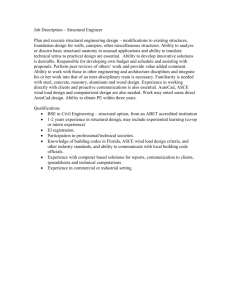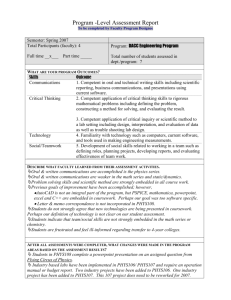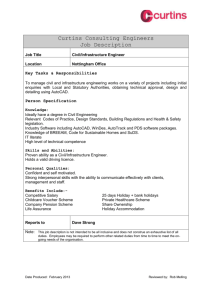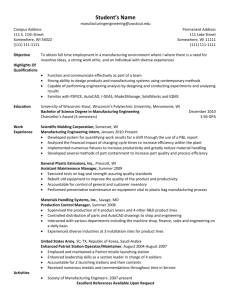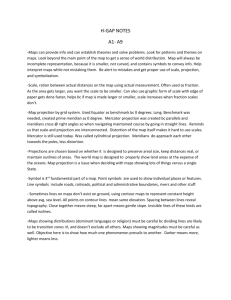CE 208—Engineering Analysis I 03(2-2-0)
advertisement
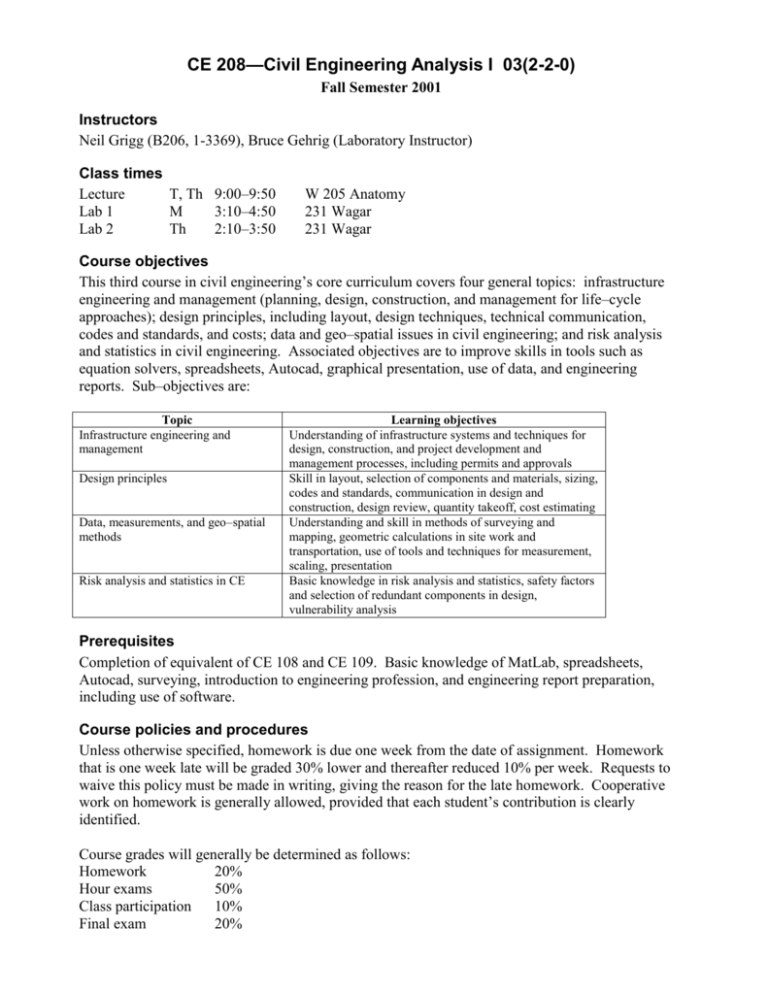
CE 208—Civil Engineering Analysis I 03(2-2-0) Fall Semester 2001 Instructors Neil Grigg (B206, 1-3369), Bruce Gehrig (Laboratory Instructor) Class times Lecture T, Th 9:00–9:50 Lab 1 M 3:10–4:50 Lab 2 Th 2:10–3:50 W 205 Anatomy 231 Wagar 231 Wagar Course objectives This third course in civil engineering’s core curriculum covers four general topics: infrastructure engineering and management (planning, design, construction, and management for life–cycle approaches); design principles, including layout, design techniques, technical communication, codes and standards, and costs; data and geo–spatial issues in civil engineering; and risk analysis and statistics in civil engineering. Associated objectives are to improve skills in tools such as equation solvers, spreadsheets, Autocad, graphical presentation, use of data, and engineering reports. Sub–objectives are: Topic Infrastructure engineering and management Design principles Data, measurements, and geo–spatial methods Risk analysis and statistics in CE Learning objectives Understanding of infrastructure systems and techniques for design, construction, and project development and management processes, including permits and approvals Skill in layout, selection of components and materials, sizing, codes and standards, communication in design and construction, design review, quantity takeoff, cost estimating Understanding and skill in methods of surveying and mapping, geometric calculations in site work and transportation, use of tools and techniques for measurement, scaling, presentation Basic knowledge in risk analysis and statistics, safety factors and selection of redundant components in design, vulnerability analysis Prerequisites Completion of equivalent of CE 108 and CE 109. Basic knowledge of MatLab, spreadsheets, Autocad, surveying, introduction to engineering profession, and engineering report preparation, including use of software. Course policies and procedures Unless otherwise specified, homework is due one week from the date of assignment. Homework that is one week late will be graded 30% lower and thereafter reduced 10% per week. Requests to waive this policy must be made in writing, giving the reason for the late homework. Cooperative work on homework is generally allowed, provided that each student’s contribution is clearly identified. Course grades will generally be determined as follows: Homework 20% Hour exams 50% Class participation 10% Final exam 20%

![the registration form [DOC format, 30KB].](http://s3.studylib.net/store/data/007326701_2-7aa061ae2787fe2d09dcfa408150476a-300x300.png)
